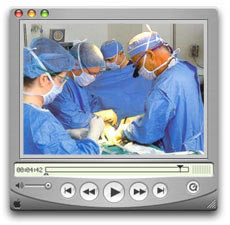Is Tubal Reversal After Age 40 Possible?
Sandra Wilson asks "Is Tubal Reversal After Age 40 Possible?"
Sandra says most doctors have negative views about the likelihood of women becoming pregnant in the forties, especially if they have had a previous tubal ligation. The commonly recommended treatment is donor egg (using the eggs from a woman in her twenties) IVF.
Data from a study of tubal reversal patients at Chapel Hill Tubal Reversal Center, however, shows that pregnancy is possible for women in their forties using their own eggs and conceiving naturally after a tubal ligation reversal.
Of the 4025 tubal ligation reversal procedures done by Dr. Berger of the Chapel Hill Tubal Reversal Center from 2001 to 2007, 13% were for women wanting a pregnancy after 40. Of these 506 women, his 2007 study shows that 41% became pregnant following their tubal reversals.
Women age 40 and older, however, do have a higher miscarriage rate (approximately 50%) than younger women (35%). Nevertheless, this study shows that tubal reversal is a reasonable treatment option, and it is considerably less expensive than the complex treatment of donor egg IVF.
Full text of Sandra's article:
There are a great many women who, after reaching the age of 40, then decide that they want to have more children although they have undergone tubal ligation. Today tubal ligation reversal to allow for pregnancy after 40 is becoming an increasingly common procedure. In one tubal reversal center alone during the period of 2001 to 2007, the surgeons carried out 4,025 tubal ligation reversals and 13% of these were for women over 40.
However, any woman who has undergone the original procedure to have her tubes tied must be aware that there are certain factors that need to be taken into consideration when thinking about having it reversed. The chances of a woman conceiving naturally once she is over 44 are greatly reduced. In fact, there is only a 5% chance of women over 44 conceiving naturally in the general population.
What these women who are seeking a tubal ligation reversal for a pregnancy after 40 need to be aware of is that not only are the chances of them becoming pregnant reduced, they also at a much greater risk of miscarrying when they do get pregnant. This concern along with related risk of chromosomal abnormalities means a woman seeking a tubal ligation reversal after 40 should be very aware of all the potential problems and be sure she considers all the alternatives.
For a woman who is trying to become pregnant when over 40 and after a tubal ligation reversal, there are certain things to do that can improve their chances. Below we look at just a few of these things.
- It is important that before a woman tries to get pregnant after the reversal that she allows her body time to heal properly. One needs to remember that abdominal surgery has been carried out, so not only do the tissues but also the muscles of this part of the body need time to recover and repair.
- By ensuring that your body has healed properly, you are providing it with the strength it needs to carry a new child. Therefore, it is a good idea for the woman to allow one complete menstrual cycle to take place before attempting to conceive after undergoing tubal ligation reversal surgery.
- Another thing the woman should do which will help when it comes to a pregnancy after 40 is to track her menstrual cycle. The most effective and efficient way of doing this is by using an ovulation prediction kit, which you can purchase from your local drug store or online. By knowing when ovulation is taking place, the couple can then determine when is the best time to make love to improvetheir chances of conceiving the child they want together.
- Lastly, once the woman thinks she is pregnant, she needs to follow closely the pregnancy protocol that her surgeon has established to ensure a healthy pregnancy and to be sure that the potential problems, such as ectopic pregnancy, have not happened.
Of the 4025 tubal ligation reversal procedures done by Dr. Berger of the Chapel Hill Tubal Reversal Center from 2001 to 2007, 13% were for women wanting a pregnancy after 40. Of these 506 women, his 2007 study shows that 41% became pregnant following their tubal reversals. Check out the blog at his website and learn more about the concerns for women becoming pregnant after 40 following a tubal reversal.

